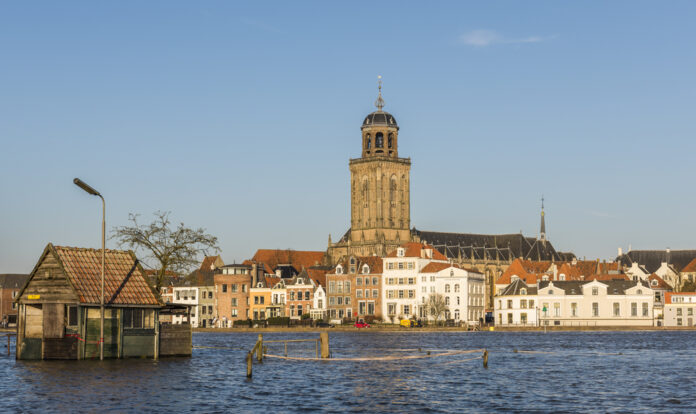“If we do nothing, our lives will change completely.”
Those were the words that accompanied the presentation of the new KNMI (Royal Netherlands Meteorological Institute) report, Climate Signal’21, writes NU.nl.
Climate Signal’21 is based on the Intergovernmental Panel on Climate Change’s (IPCC) calculations from this summer and is a preview for an even more comprehensive version that’s due in 2023.
The current report, which was released yesterday, contains additional research that focuses specifically on climate change in the Netherlands.
So, what did it say?
Sea levels will rise more than expected
The most striking thing in the report was a drastic revision of the predicted rise in sea levels. In 2014, the KNMI concluded that in a worst-case scenario the sea levels would rise by one metre by 2100.
Now, we’re looking at a rise of up to 1.2 metres in 2100. 😳 The KNMI also included a new worst-case scenario: if the ice loss in Antarctica accelerates sea levels around the Dutch coast could rise by as much as two metres — twice the increase predicted in 2014.
Weather extremes will become more common
Remember the heatwaves of last summer? And the crazy rainfall and floods in Limburg? Well, according to the KNMI, we may have to get used to it. In Climate Signal’21 they highlight that climate change is making weather patterns more extreme in the Netherlands.
Especially the Dutch summer will become hotter, drier, and wetter. (Yup, more rain is apparently possible. 🙃) The triple combo threatens the Netherlands with spring and summer droughts as well as extreme summer downpours — whoo.
For the Dutch islands in the Caribbean, hurricanes will become more frequent.
What can be done?
The Netherlands already has something called the Delta Programme, which is a collaborative project between various levels of the Dutch government and a number of NGOs. Aiming to protect the Netherlands from flooding, the Delta Programme contains targets that apply until 2050.
READ MORE | How do the Dutch feel about climate change?
However, climate expert and former professor Pier Vellinga of Wageningen University (who acted as an adviser to a former climate committee) tells the NOS that the programme ought to be revised.
Vellinga argues that preventive measures should focus on the places where most people are at risk, rather than the coasts.
For example, the areas surrounding Rotterdam and Gauda should be given two dykes rather than one. Vellinga says that “with double dykes you can extend life in the Randstad perhaps 300 years.”
It is, however, uncertain how much support there is for new intensive measures.
What do you think of the new findings? Will more dykes be the solution? Tell us in the comments below!
Feature Image: Kloeg008/Depositphotos
